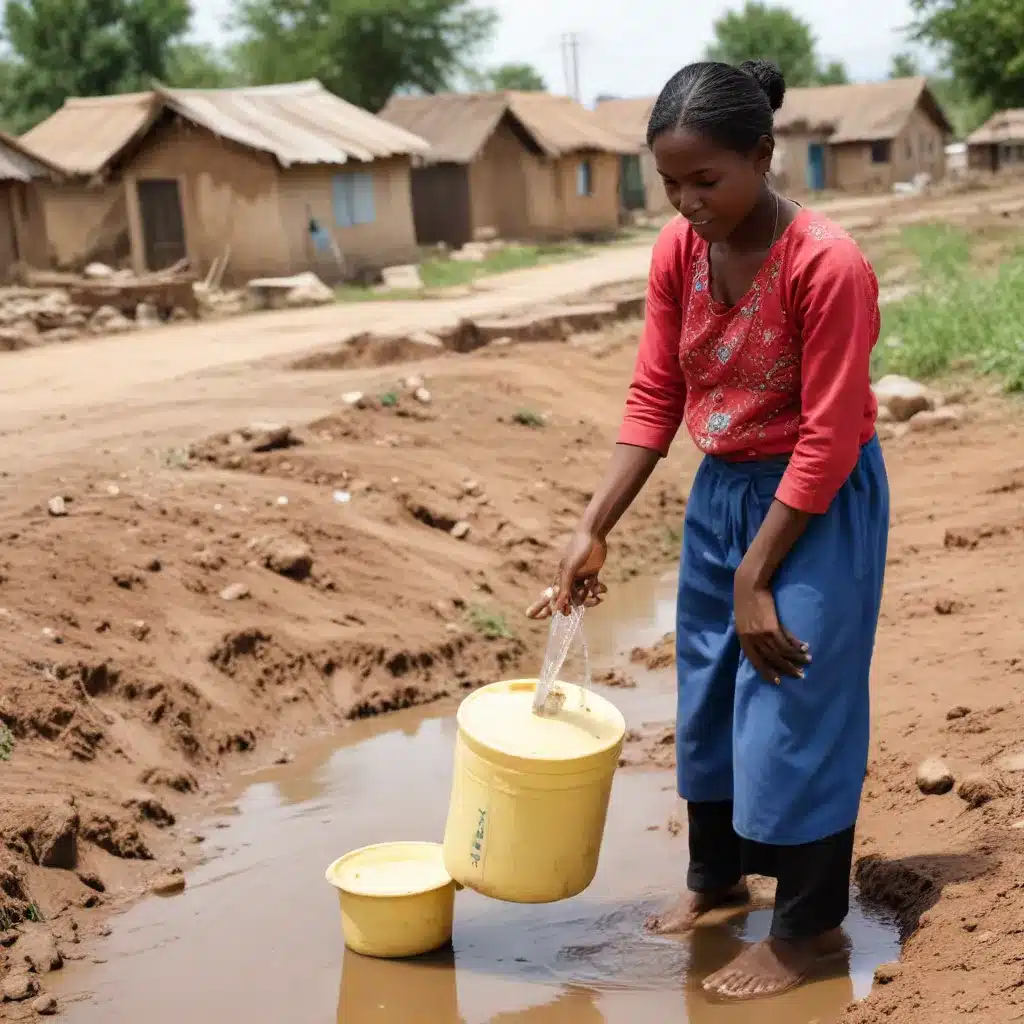
The Critical Role of Water, Sanitation, and Hygiene (WASH) in Protecting Public Health
Access to safe drinking water, adequate sanitation, and proper hygiene practices are fundamental to maintaining community health and preventing the spread of waterborne diseases. Water, Sanitation, and Hygiene (WASH) play a crucial role in building resilient communities that can withstand and recover from water-related disease outbreaks.
Unsafe drinking water, improper disposal of human waste, and poor hygiene behaviors can lead to the transmission of illnesses such as diarrhea, cholera, typhoid, and dysentery. These water-borne diseases not only impact individual health but can also have far-reaching consequences, disrupting livelihoods, education, and overall community well-being. Strengthening WASH services is therefore essential for safeguarding public health and fostering more resilient communities.
Integrating WASH into Disease Outbreak Preparedness and Response
When communities are equipped with reliable WASH services, they are better positioned to prevent and respond to water-related disease outbreaks. Incorporating WASH considerations into outbreak preparedness and response strategies can significantly enhance a community’s resilience.
Ensuring Safe Water and Sanitation during Emergencies
During disease outbreaks, ensuring the availability of safe water and adequate sanitation facilities is crucial. This may involve:
– Expanding access to drinking water sources, such as through the construction of new boreholes or the rehabilitation of existing water infrastructure
– Improving sanitation systems, including the provision of latrines, community toilets, and wastewater treatment facilities
– Implementing temporary solutions, such as the distribution of water purification tablets or the deployment of mobile handwashing stations
Promoting Hygiene Practices
Effective hygiene behaviors, particularly handwashing with soap, are essential for interrupting disease transmission. Community-based hygiene promotion campaigns can educate residents on the importance of handwashing, proper food preparation and storage, and safe waste management. Leveraging behavior change communication strategies and engaging local champions can help drive sustainable hygiene practices.
Strengthening Surveillance and Early Warning Systems
Integrating WASH data into disease surveillance and early warning systems can enhance the ability to anticipate and respond to water-related disease outbreaks. This may include:
– Monitoring water quality and sanitation infrastructure
– Tracking disease incidence and transmission patterns
– Establishing communication channels between WASH and health sectors to enable timely identification and response to potential outbreaks
Promoting Intersectoral Collaboration
Effective WASH-based disease outbreak prevention and response requires coordination and collaboration among various stakeholders, including government agencies, community organizations, and development partners. By fostering multisectoral partnerships, communities can leverage expertise, resources, and innovative solutions to enhance their resilience.
Ensuring Equitable and Sustainable WASH Services
Sustainable and equitable access to WASH services is crucial for building resilient communities. This involves addressing the unique needs and vulnerabilities of marginalized groups, such as women, children, the elderly, and people with disabilities.
Addressing Marginalization and Inequities
Ensuring that WASH services reach the most vulnerable populations is essential for promoting inclusive and resilient communities. This may involve:
– Prioritizing the needs of underserved communities in WASH planning and budgeting
– Engaging marginalized groups in the design and implementation of WASH initiatives
– Addressing barriers to access, such as affordability, cultural norms, and physical accessibility
Fostering Community Ownership and Sustainability
Engaging local communities in the management and maintenance of WASH systems is crucial for ensuring long-term sustainability. This can be achieved through:
– Strengthening the capacity of community-based organizations and water user committees
– Promoting the participation of women and youth in WASH decision-making processes
– Developing robust operations and maintenance mechanisms to ensure the continuous functionality of WASH infrastructure
Leveraging Innovative Financing Mechanisms
Mobilizing diverse financial resources is essential for scaling up and sustaining WASH services. This may include:
– Exploring blended finance approaches that combine public, private, and development partner funding
– Implementing tariff structures that ensure affordability while ensuring the financial viability of WASH service providers
– Encouraging investments in climate-resilient WASH infrastructure to mitigate the impacts of environmental stressors
Strengthening Community Resilience through WASH Interventions
By integrating WASH into disease outbreak preparedness and response, and ensuring equitable and sustainable WASH services, communities can significantly enhance their resilience to water-related public health challenges.
Improving Health Outcomes
Reliable access to safe water, adequate sanitation, and proper hygiene practices can dramatically reduce the burden of waterborne diseases, leading to improved health outcomes. This includes a reduction in diarrheal disease-related mortality, particularly among children under five, as well as the prevention of other water-related illnesses, such as cholera, typhoid, and schistosomiasis.
Enhancing Livelihoods and Economic Resilience
Improved WASH services contribute to enhanced livelihoods and economic resilience. By reducing the time and effort spent on water collection, especially for women and girls, WASH interventions can free up time for education, income-generating activities, and community participation. Additionally, healthier communities with reduced disease burdens can engage more productively in economic activities, further strengthening the overall resilience of the local economy.
Promoting Social Cohesion and Inclusion
WASH initiatives that prioritize equity and community engagement can foster social cohesion and inclusion. By ensuring that marginalized groups have equal access to WASH services and are involved in decision-making processes, communities can build trust, strengthen social ties, and enhance their collective capacity to withstand and recover from water-related crises.
Building Climate Resilience
Integrating climate change considerations into WASH planning and investments can help communities become more resilient to the impacts of environmental stressors, such as droughts, floods, and water scarcity. This may involve the use of climate-smart technologies, the diversification of water sources, and the implementation of adaptive management strategies to ensure the long-term sustainability of WASH services.
Conclusion: Investing in WASH for Resilient Communities
Strengthening community resilience to water-related disease outbreaks requires a comprehensive and multifaceted approach that places WASH at the center of public health, disaster preparedness, and sustainable development efforts. By prioritizing the integration of WASH into outbreak response, ensuring equitable and sustainable service delivery, and fostering community ownership and climate resilience, we can empower communities to withstand and recover from water-related crises, ultimately leading to healthier, more prosperous, and more resilient societies.
To learn more about the Joint Action for Water’s work in promoting WASH-based community resilience, please visit https://jointactionforwater.org/.

